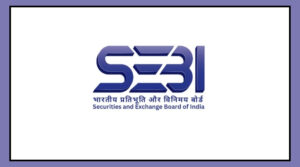Gold Imports in India: The Government of India has changed the rules for importing precious metals like gold, silver, and platinum.
On May 19, the Directorate General of Foreign Trade (DGFT) issued a notification moving these metals to the ‘restricted’ import category. This change comes under the Finance Act 2025.
The aim is to prevent misuse, standardize HS (Harmonized System) codes, and make the import process more transparent.
The new rules clearly define who can import these metals and under what conditions. The goal is to bring better control and prevent irregularities in metal imports.
Importing Gold Now Becomes Difficult
Earlier, certain types of gold could be imported easily. But under the new rules, gold with 99.5% purity or higher is now in the ‘restricted’ category.
This means special government approval is required to import such gold.
These changes apply to gold listed under HS codes 71081210 and 71081310.
Now, only those agencies with permission from the Reserve Bank of India (RBI) or DGFT can import this type of gold.
In addition, large and trusted jewelers recognized by the International Financial Services Centres Authority (IFSCA) can import through the India International Bullion Exchange (IIBX).
Silver Imports Also Face Restrictions
Just like gold, importing silver will now be more closely monitored. Previously, silver bars with 99.9% or higher purity were easy to import.
Under the new rules, they are now ‘restricted’ too. They can only be imported through IIBX by RBI-approved banks, DGFT-authorized agencies, or IFSCA-approved jewelers.
However, some finished silver products (like those under codes 71069221 and 71069229) are still easier to import, though they will be regulated by RBI.
Platinum Rules Also Updated
There are also changes for platinum imports. Platinum with 99% or more purity can still be imported easily. But for other types, prior government approval will now be required.
The government has also removed outdated and unused HS codes to simplify the system and improve tracking.
Why Were These Changes Made?
To Stop Misuse:
Loopholes in the earlier rules allowed illegal imports. By standardizing codes and limiting who can import, fraud can be reduced.
Better Tracking:
With fewer authorized channels, it’s easier to monitor when, where, and how these metals are brought into the country.
Support for Local Industry:
Experts believe that these rules will help organize and boost the domestic bullion market. Promoting platforms like IIBX is part of this strategy.
Protecting the Economy:
Unchecked import of precious metals can hurt the trade balance and financial stability. These new rules help keep that in check.
Meeting International Obligations:
The new rules also align with global trade agreements like the India-UAE CEPA, showing India’s commitment to international standards.
Impact on Jewelers and Investors
With stricter rules, not everyone will be allowed to directly import high-purity gold or silver. Jewelers will need IFSCA approval and must use IIBX.
Banks and agencies will also require government permission to carry out imports.
As for investors and consumers, these restrictions may reduce the availability of high-purity gold and silver in the market.
If imports fall, domestic prices could go up slightly. However, this will also depend on global market trends and other economic factors.
























